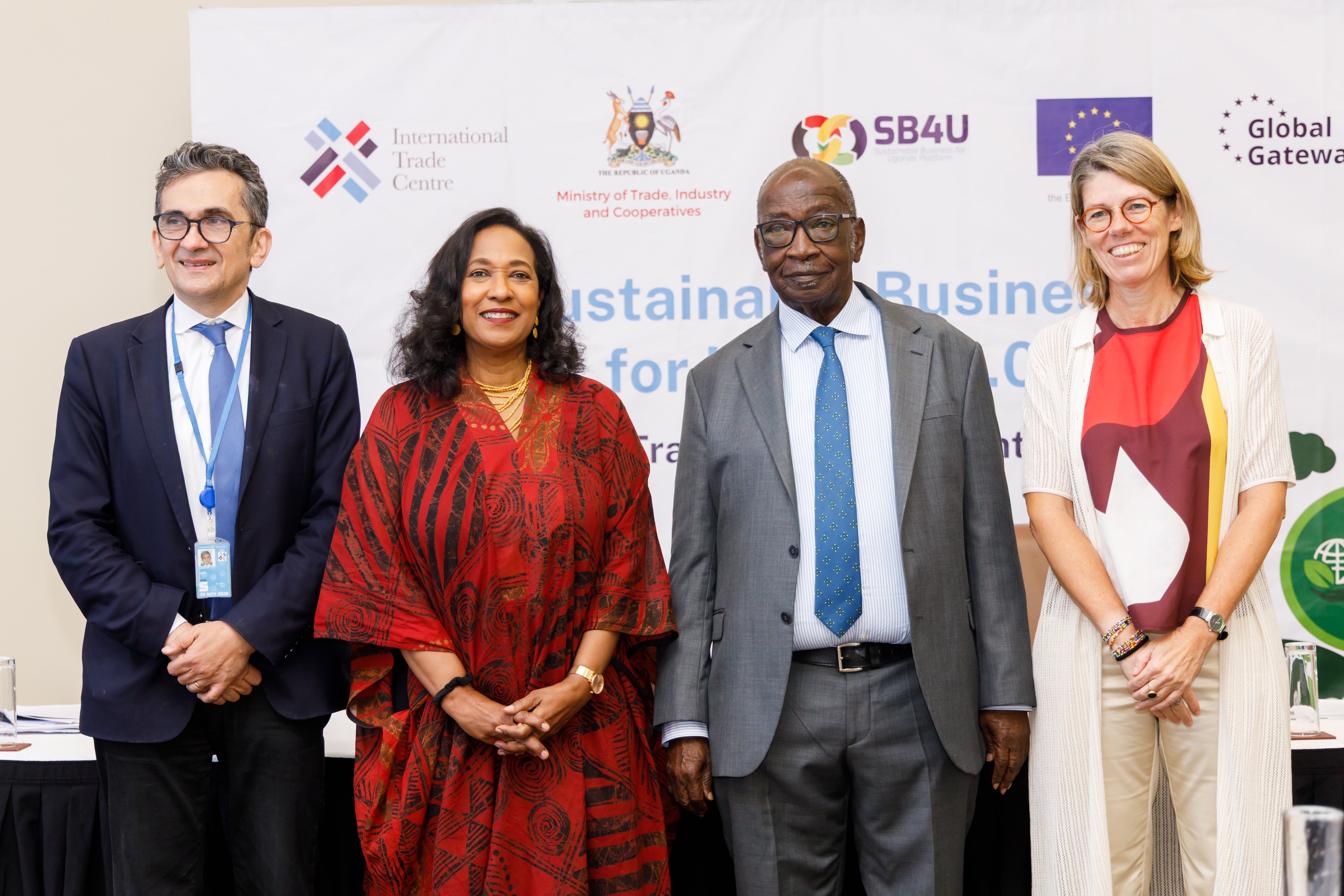Uganda launches UGX 33 billion project to boost SME growth and international trade
The collaboration between the Ugandan government, the International Trade Centre, and the European Union underscores the shared commitment to supporting Uganda's economic development and creating opportunities for its SMEs.

The Ugandan Ministry of Trade, Industry, and Cooperatives, in partnership with the International Trade Centre (ITC) and with the financial backing of the Delegation of the European Union to Uganda, has officially launched the Sustainable Business for Uganda (SB4U) project.
This ambitious €8 million (UGX 33 billion) initiative is geared towards empowering Ugandan Small and Medium-sized Enterprises (SMEs) to scale their operations, enhance their competitiveness, and expand their trade footprint both within Africa and on the global stage.
The SB4U project represents a significant investment in Uganda’s economic future, focusing on creating a more conducive environment for SMEs to thrive. Recognizing the crucial role SMEs play in job creation and economic diversification, the project aims to address key challenges hindering their growth and integration into international markets.
Speaking at the launch on Tuesday, Sanne Willems, Team Leader of the EU Delegation to Uganda, emphasized the collaborative approach taken in developing the project. “We consulted at length to shape this project to directly contribute to the strategic objectives of the Government of Uganda, to strengthen the trade & investment profile of Uganda & in particular, its relationship with the EU market,” Willems stated. This highlights the project’s alignment with Uganda’s existing development goals and its focus on strengthening trade ties with the European Union.
The Executive Director of the International Trade Centre, Pamela Coke-Hamilton, highlighted the transformative potential of the SB4U project for Ugandan SMEs. “The SB4U Project is one of the kinds of efforts that will help make sure more Ugandan SMEs are well poised to navigate some of the new frontiers—from the digital revolution to the green transition,” she noted. The project will focus on adapting to evolving market landscapes through:
- Investment Climate Improvements: Creating a more attractive and stable environment for investment in Ugandan SMEs.
- Trade Facilitation: Streamlining trade processes and reducing bureaucratic hurdles to make exporting and importing easier.
- E-commerce: Supporting SMEs in adopting digital technologies and leveraging online platforms to reach wider markets.
Coke-Hamilton also emphasized the project’s focus on inclusivity, stating, “Led by the Ministry of Trade, Industry, and Cooperatives with EU support, we’re targeting growth through small businesses, led by women and youth.” This targeted approach aims to address the specific challenges faced by women and young entrepreneurs, promoting their participation in the economy and fostering sustainable economic growth.
The Minister of Trade, Industry, and Cooperatives, Francis Mwebesa, expressed the Ugandan government’s commitment to the success of the project. “Through the SB4U project, Uganda anticipates tangible & far-reaching outcomes,” he said, reaffirming the ministry’s commitment to providing strategic oversight throughout the project’s implementation.
The SB4U project focuses on several key areas crucial for SME development, including:
- Strengthening the Policy Framework: Working to create a supportive regulatory environment that encourages SME growth and innovation.
- Creating a Favorable Business Environment: Addressing systemic challenges that hinder SME competitiveness.
- Promoting Quality Compliance and Standards: Helping SMEs meet international quality standards to improve their access to global markets.
The launch of the Sustainable Business for Uganda project signifies a significant step towards empowering Ugandan SMEs and fostering sustainable economic growth. With its focus on policy reforms, trade facilitation, and digital transformation, the project promises to equip Ugandan businesses with the tools they need to thrive in a rapidly changing global market.







